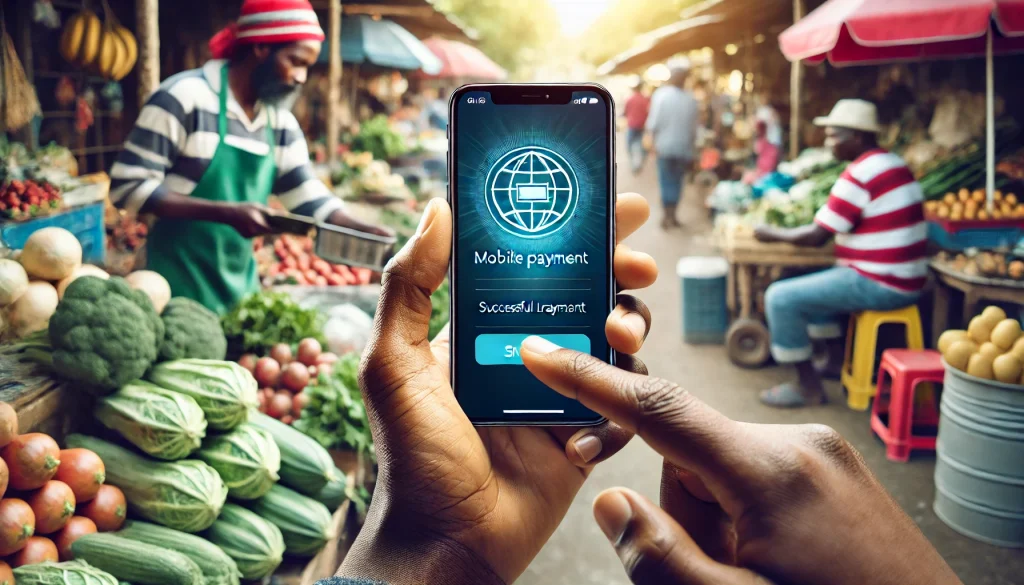Mobile payments are rapidly transforming the financial landscape in South Africa, driven by increasing digitalization and a surge in smartphone usage. The convenience and accessibility of mobile payment systems are reshaping how South Africans engage with money, fueling a move away from cash transactions. In this article, we’ll explore the rapid growth of mobile payments in South Africa, the key players leading this change, and the benefits and challenges that come with these innovative solutions.
This examination will delve into recent statistics on the adoption of mobile payments, the factors spurring this digital shift, and the fintech companies that are at the forefront of this financial revolution. Our discussion will also highlight the benefits of mobile payments, such as enhanced security and financial inclusion, while addressing existing challenges like security issues and limited access in rural areas. Lastly, we’ll look ahead to future trends that promise to further redefine the mobile payment landscape.
The growth of mobile payments in South Africa

Recent statistics indicate a significant adoption of mobile payments in South Africa, with millions of transactions processed monthly. This growth is fueled by increased digital inclusion, widespread access to smartphones, and robust mobile internet coverage. The accessibility to mobile technology has opened up financial services to previously underserved communities, spurring economic inclusivity.
Fintech companies and traditional banks play pivotal roles in this expansion, developing innovative solutions that cater to a growing digital audience. Companies like MTN Mobile Money and SnapScan offer unique financial products that drive efficient and secure payments. Traditional banks are now partnering with fintechs to enhance their offerings and ensure a seamless customer experience.
The Kenyan success story of M-Pesa paved the way for mobile payments South Africa to flourish. As South Africans increasingly embrace digital transactions, the country is poised to become a leader in financial technology. Mobile payments bring unprecedented convenience and open up new avenues for financial growth across various sectors.
Main providers of mobile payments
The South African mobile payment market is dominated by a few key players, including MTN Mobile Money, SnapScan, and Zapper. These companies offer diverse solutions that cater to different aspects of mobile financial services. MTN Mobile Money focuses on person-to-person transfers and bill payments, enhancing financial accessibility for individuals without traditional banking services.
SnapScan and Zapper, on the other hand, have revolutionized the retail and service sectors by providing quick and seamless payment options through QR code technology. Their platforms allow consumers to make payments directly from their smartphones, without needing cash or physical cards. This has greatly impacted small and medium enterprises by offering them more efficient ways to transact with their customers.
The synergy between these mobile payment providers and local banks strengthens the financial ecosystem, offering consumers an array of flexible payment options. This connectivity ensures that users can easily link their mobile wallets to traditional accounts, enhancing the practicality of mobile payments South Africa.
Benefits and challenges of mobile payments
Mobile payments provide numerous benefits such as convenience, security, and least reliance on physical cash. They promote financial inclusion, enabling more people to participate in the formal economy, and offer secure transaction options that protect users from fraud. With increased adoption, mobile payments can reduce the prevalence of cash theft and loss.
However, challenges like security concerns, especially around cyber threats, still persist. The limited infrastructure in rural areas restricts access, keeping adoption rates lower among businesses outside urban centers. Additionally, some small businesses remain resistant to adopting new technologies due to setup costs and lack of awareness.
To counter these challenges, stakeholders are investing in security technologies that ensure safe transactions. Extending mobile network coverage and providing financial education to business owners can foster higher adoption rates, especially in underserved areas.
The future of mobile payments in South Africa
The future of mobile payments in South Africa looks promising, with trends such as contactless payments gaining momentum. As technology continues to evolve, integration with cryptocurrencies and artificial intelligence is expected to enhance user experience and payment efficiency. The ongoing technological advancements will likely increase consumer trust and further drive adoption.
Regulatory frameworks will play a crucial role in shaping the landscape by ensuring protection and compliance. Furthermore, financial education will be pivotal in overcoming resistance and enabling widespread adoption of these digital solutions across communities. As South Africa advances, mobile payments will become an integral part of everyday transactions, bringing greater financial stability and access.
The ongoing evolution will require sustained efforts in education and infrastructure development. This will not only broaden the reach of mobile payments but also ensure sustainable economic growth and inclusivity. By fostering a technologically inclusive environment, mobile payments South Africa will contribute significantly to the country’s financial landscape.
Conclusion
In conclusion, mobile payments in South Africa are revolutionizing the way financial transactions are conducted, providing greater convenience and security. With the participation of fintech firms and banks, these solutions are continually evolving to meet consumer needs. Despite existing challenges, the sector’s future looks promising, with opportunities for growth and innovation.
The continued expansion of mobile payment solutions promises to drive substantial advancements in financial services. Encouraging the use of such mobile solutions can enhance financial stability for individuals and businesses alike. Embracing this change can usher in a new era of financial efficiency and accessibility, contributing to the overall economic health of South African society.



